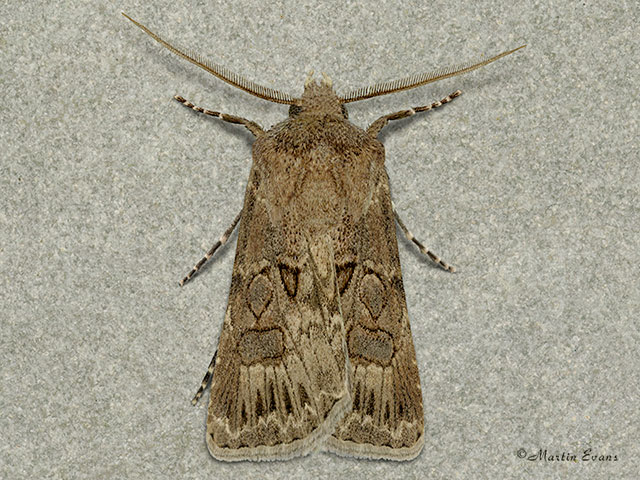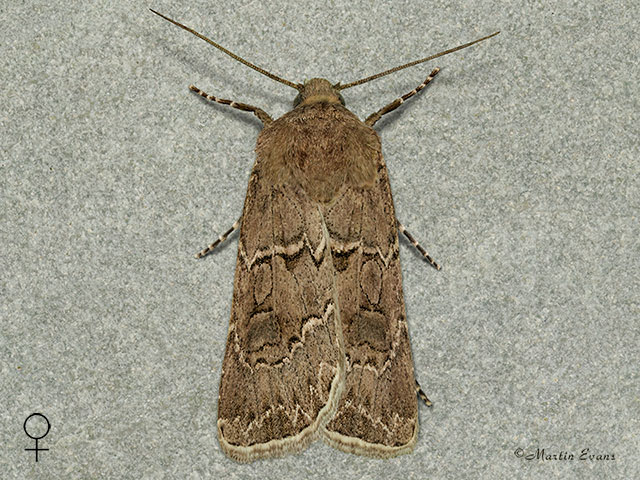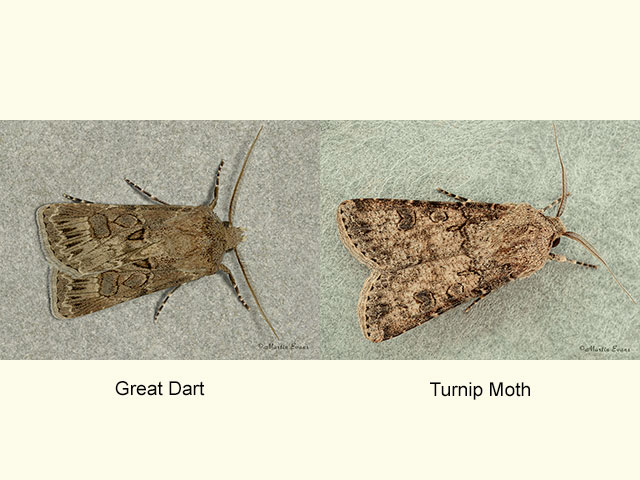Noctuidae
73.315 Great Dart Agrotis bigramma (Esper, 1790)
Immigrant / Resident on the Channel Islands
Similar species: Both sexes vary in the backgrond colour from pale brown to dark grey-brown. They also vary in the intensity of the markings and the size of the darts on the inside of the outer crossline and the dark single dart on the outer side of the inner crossline. The males have broad feathered antennae. Turnip Moth Agrotis segetum has narrower wings, lacks the deep narrow loop at the trailing edge of the inner central cross-line and has less obvious or may lack the black darts on the inside of the outer cross-line.
Forewing: 16 to 20mm
Habitats: On the European mainland it inhabits sandy grassland or open scrub with a sparse ground flora.
Habits: The moth visits flowers and is attracted to sugar and light.
Foodplant: The larva feeds on the roots and lower stems of grasses and low growing plants. It has been reported as a vineyard pest. In captivity it accepts sliced carrot. The full-fed larva aestivates under the soil before pupating.




